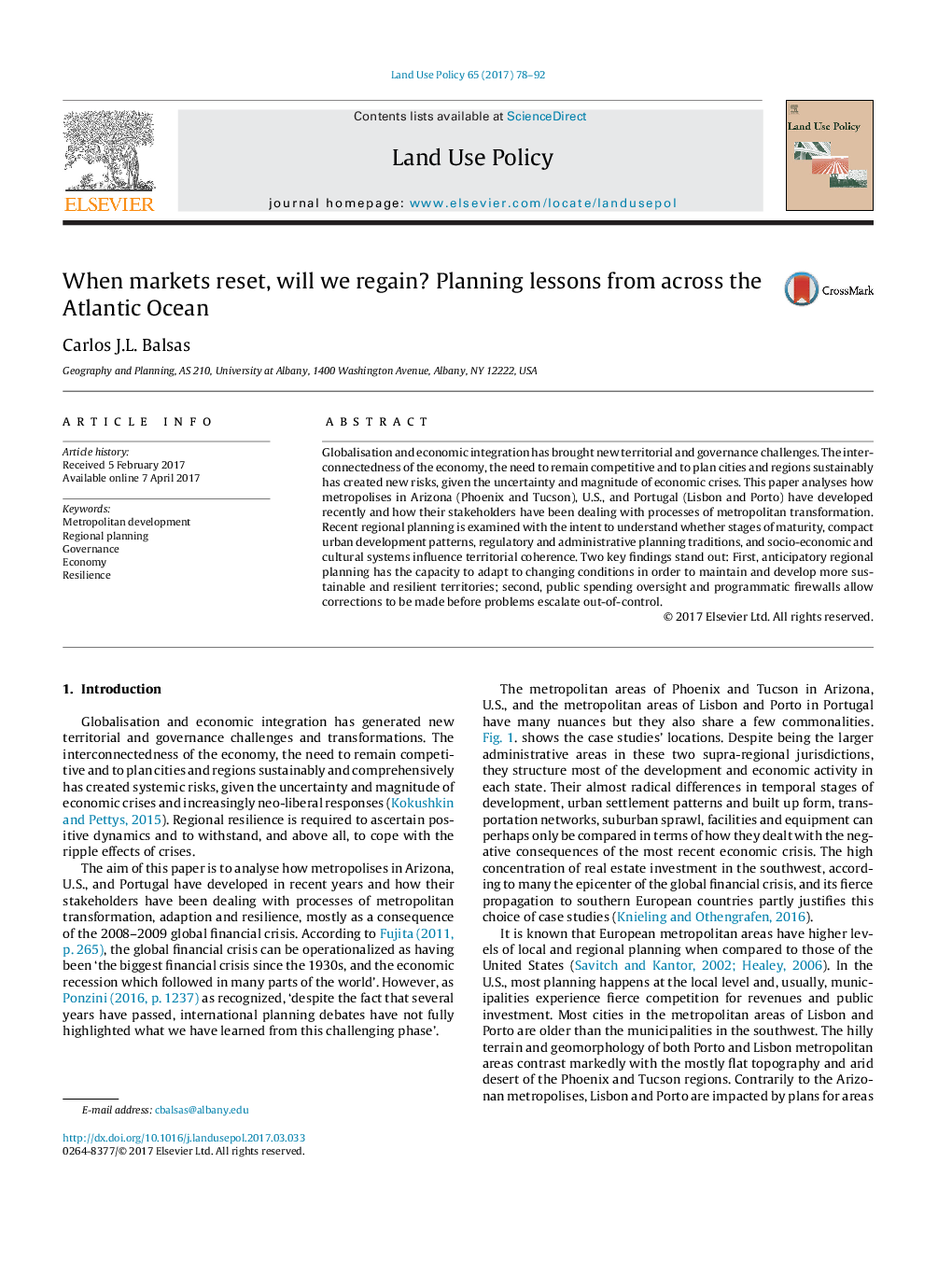| Article ID | Journal | Published Year | Pages | File Type |
|---|---|---|---|---|
| 6461125 | Land Use Policy | 2017 | 15 Pages |
â¢Metropolises in Arizona and Portugal are analyzed in terms of regional planning and metropolitan governance.â¢Phoenix and Tucson (U.S.) and Lisbon and Porto (Portugal) are compared according to the SPPVI analytical framework.â¢The mismatch between the nature of the global financial crisis and the proposed solutions is highlighted.â¢Anticipatory regional planning has the capacity to adapt to changing conditions while developing more sustainable and resilient territories.â¢Public spending oversight and programmatic firewalls allow corrections to be made before problems escalate out-of-control.
Globalisation and economic integration has brought new territorial and governance challenges. The interconnectedness of the economy, the need to remain competitive and to plan cities and regions sustainably has created new risks, given the uncertainty and magnitude of economic crises. This paper analyses how metropolises in Arizona (Phoenix and Tucson), U.S., and Portugal (Lisbon and Porto) have developed recently and how their stakeholders have been dealing with processes of metropolitan transformation. Recent regional planning is examined with the intent to understand whether stages of maturity, compact urban development patterns, regulatory and administrative planning traditions, and socio-economic and cultural systems influence territorial coherence. Two key findings stand out: First, anticipatory regional planning has the capacity to adapt to changing conditions in order to maintain and develop more sustainable and resilient territories; second, public spending oversight and programmatic firewalls allow corrections to be made before problems escalate out-of-control.
